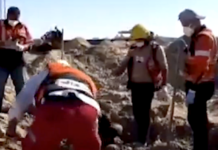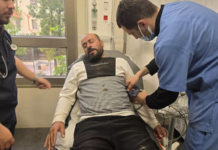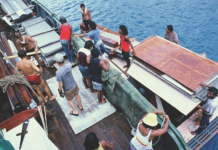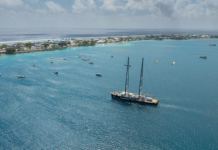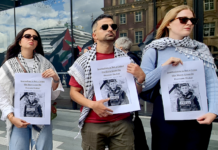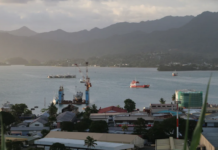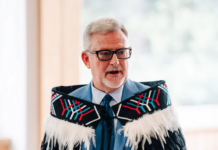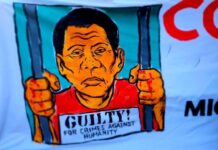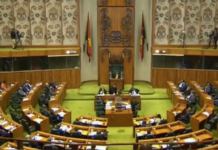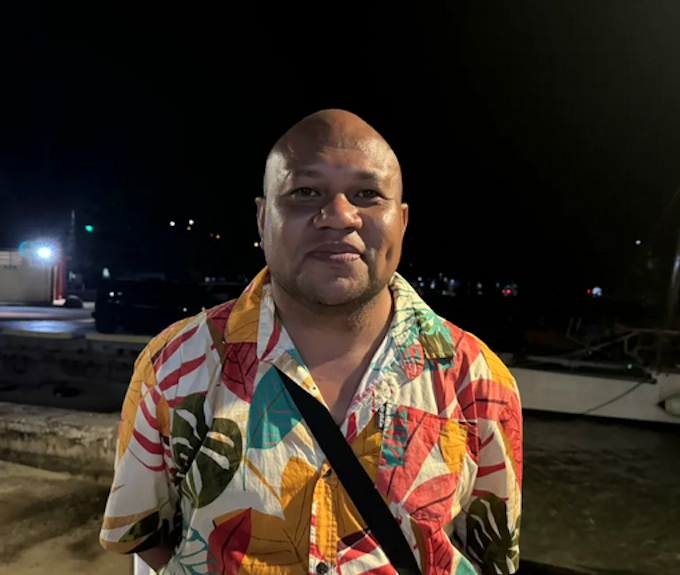
French President Emmanuel Macron, who visited Kanaky New Caledonia last month in a largely failed bid to solve the French Pacific territory’s political deadlock, has called a snap election following the decisive victory of the rightwing bloc among French members of the European Parliament. Don Wiseman reports.
By Don Wiseman, RNZ Pacific senior journalist
A group of 32 civil society organisations is writing to the French President Emmanuel Macron calling on him to change his stance toward the indigenous people of New Caledonia.
The group said it strongly supported the call by the FLNKS (Kanak and Socialist National Liberation Front) and other pro-independence groups that only a non-violent response to the crisis will lead to a viable solution.
And it said President Macron must heed the call for an Eminent Persons Group to ensure the current crisis is resolved peacefully and impartiality is restored to the decolonisation process.
- READ MORE: France’s snap election: what happened, why, and what’s next?
- Far right surges in EU vote, topping polls in Germany, France, Austria
- Other Kanaky New Caledonia reports
Don Wiseman spoke with Joey Tau, of the Pacific Network on Globalisation (PANG), one of the civil society bodies involved.
Joey Tau: Don, I just want to thank you for this opportunity, but also it is to really highlight France’s and, in this case, the Macron administration’s inability of fulfilling the Nouméa Accord in our statements, in our numerous statements, and you would have seen statements from around the region — there have been numerous events or incidents that have led to where Kanaky New Caledonia is at in its present state, with the Kanaks themselves not happy with where they’re headed to, in terms of negotiating a pathway with Paris.
You understand the referendums — three votes went ahead, or rather, the third vote went ahead, during a time when the world was going through a global pandemic. And the Kanaks had clearly, prior to the third referendum, called on Paris to halt, but yet France went ahead and imposed a third referendum.
Thus, the Kanaks boycotted the third referendum. All of these have just led up to where the current tension is right now.
The recent electoral proposal by France is a slap for Kanaks, who have been negotiating, trying to find a path. So in general, the concern that Pacific regional NGOs and civil societies not only in the Pacific, but at the national level in the Pacific, are concerned about France’s ongoing attempt to administer Kanaky New Caledonia [and] its inability to fulfill the Nouméa Accord.
Don Wiseman: In terms of stopping the violence and opening the dialogue, the problem I suppose a lot of people in New Caledonia and the French government itself might argue is that Kanaks have been heavily involved in quite a lot of violence that’s gone down in the last few weeks. So how do you square that?
JT: It has been growing, it has been a growing tension, Don, that this is not to ignore the growing military presence and the security personnel build up. You had roughly about 3000 military personnel or security personnel deployed in Nouméa on in Kanaky within two weeks, I think . . .
DW: Yes, but businesses were being burned down, houses were being burned down.
JT: Well as regional civil societies we condemn all forms of violence, and thus we have been calling for peaceful means of restoring peace talks, but this is not to ignore the fact that there is a growing military buildup. The ongoing military buildup needs to be also carefully looked at as it continues to instigate tension on the ground, limiting people, limiting the indigenous peoples movements.
And it just brings you back to, you know, the similar riots that had [in the 1980s] before New Caledonia came to an accord, as per the Nouméa Accord. It’s history replaying itself. So like I said earlier on, it generally highlights France’s inability to hold peace talks for the pathway forward for Kanaky/New Caledonia.
In this PR statement we’ve been calling on that we need neutral parties — we need a high eminence group of neutral people to facilitate the peace talks between Kanaks and France.
DW: So this eminent persons to be drawn from who and where?
JT: Well the UNC 24 committee meets [this] week. We are calling on the UN to initiate a high eminence persons but this is to facilitate these together with the Pacific Islands Forum Secretariat. Have independent Pacific leaders intervene and facilitate peace talks between both the Kanak pro=independence leaders and of course Macron and his administration.
DW: So you will be looking for the Eminent Persons group perhaps to be centrally involved in drawing up a new accord to replace the Nouméa Accord?
JT: Well, I think as per the Nouméa Accord the Kanaks have been trying to negotiate the next phase, post the referendum. And I think this has sparked the current situation. So the civil societies’ call very much supports concerns on the ground who are willing, who are asking for experts or neutral persons from the region and internationally to intervene.
And this could help facilitate a path forward between both parties. Should it be an accord or should it be the next phase? But we also have to remember New Caledonia Kanaky is on the list of the Committee of 24 which is the UN committee that is listed for decolonisation.
So how do we progress a territory? I guess the question for France is how do they progress the territory that is listed to be decolonised, post these recent events, post the referendum and it has to be now.
DW: Joey, you are currently at the Pacific Arts Festival in Hawai’i. There’s a lot of the Pacific there. Have issues like New Caledonia come up?
JT: The opening ceremony, which launches [the] two-week long festival saw a different turn to it, where we had flags representing Kanaky New Caledonia, West Papua, flying so high at this opening ceremony. You had the delegation of Guam, who, in their grand entrance brought the Kanaky flag with them — a sense of solidarity.
And when Fiji took the podium, it acknowledged countries and Pacific peoples that are not there to celebrate, rightfully.
Fiji had acknowledged West Papua, New Caledonia, among others, and you can see a sense of regional solidarity and this growing consciousness as to the wider Pacific family when it comes to arts, culture and our way of being.
So yeah, the opening ceremony was interesting, but it will be interesting to see how the festival pans out and how issues of the territories that are still under colonial administration get featured or get acknowledged within the festival — be it fashion, arts, dance, music, it’s going to be a really interesting feeling.
This article is republished under a community partnership agreement with RNZ.


